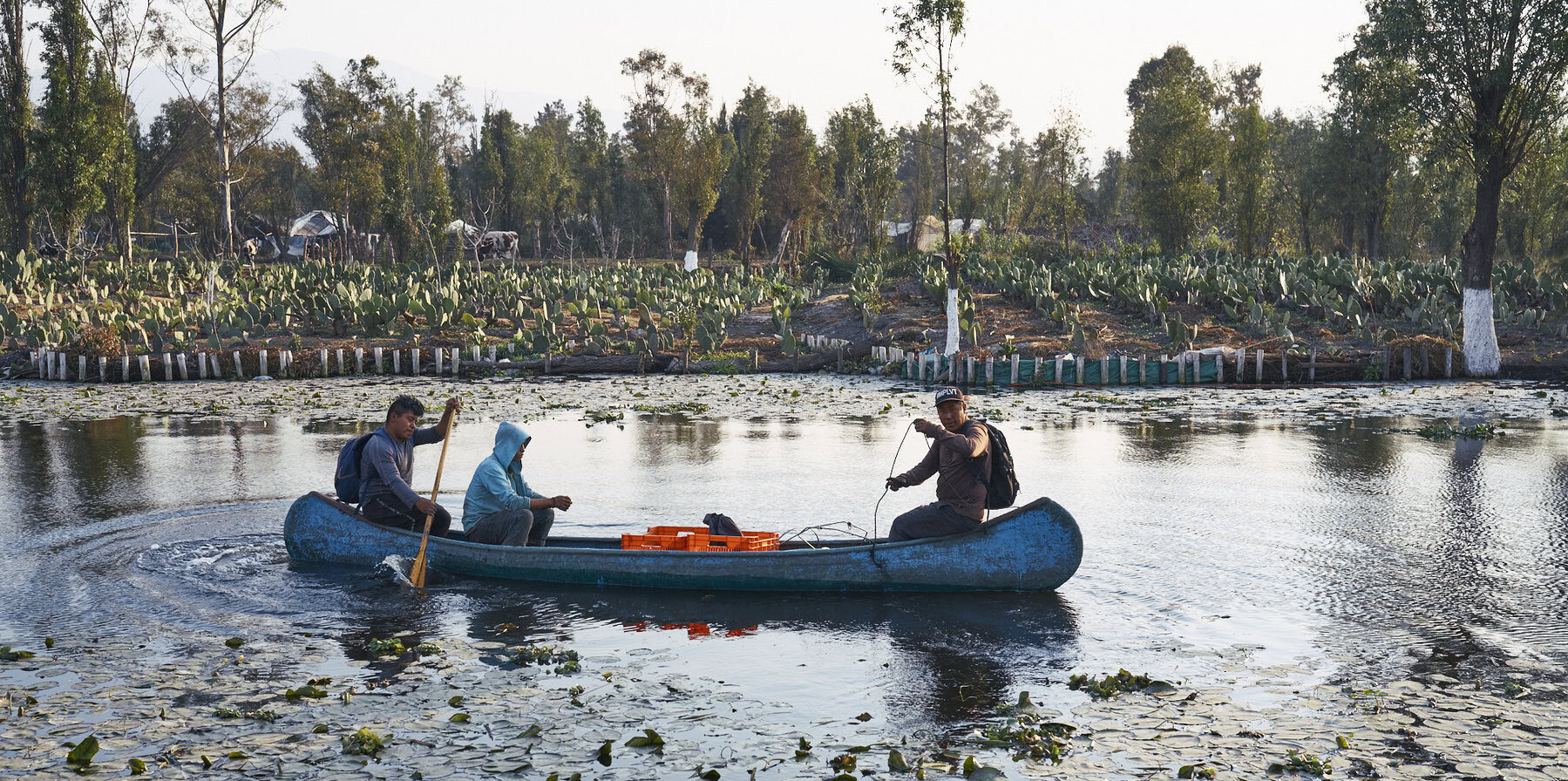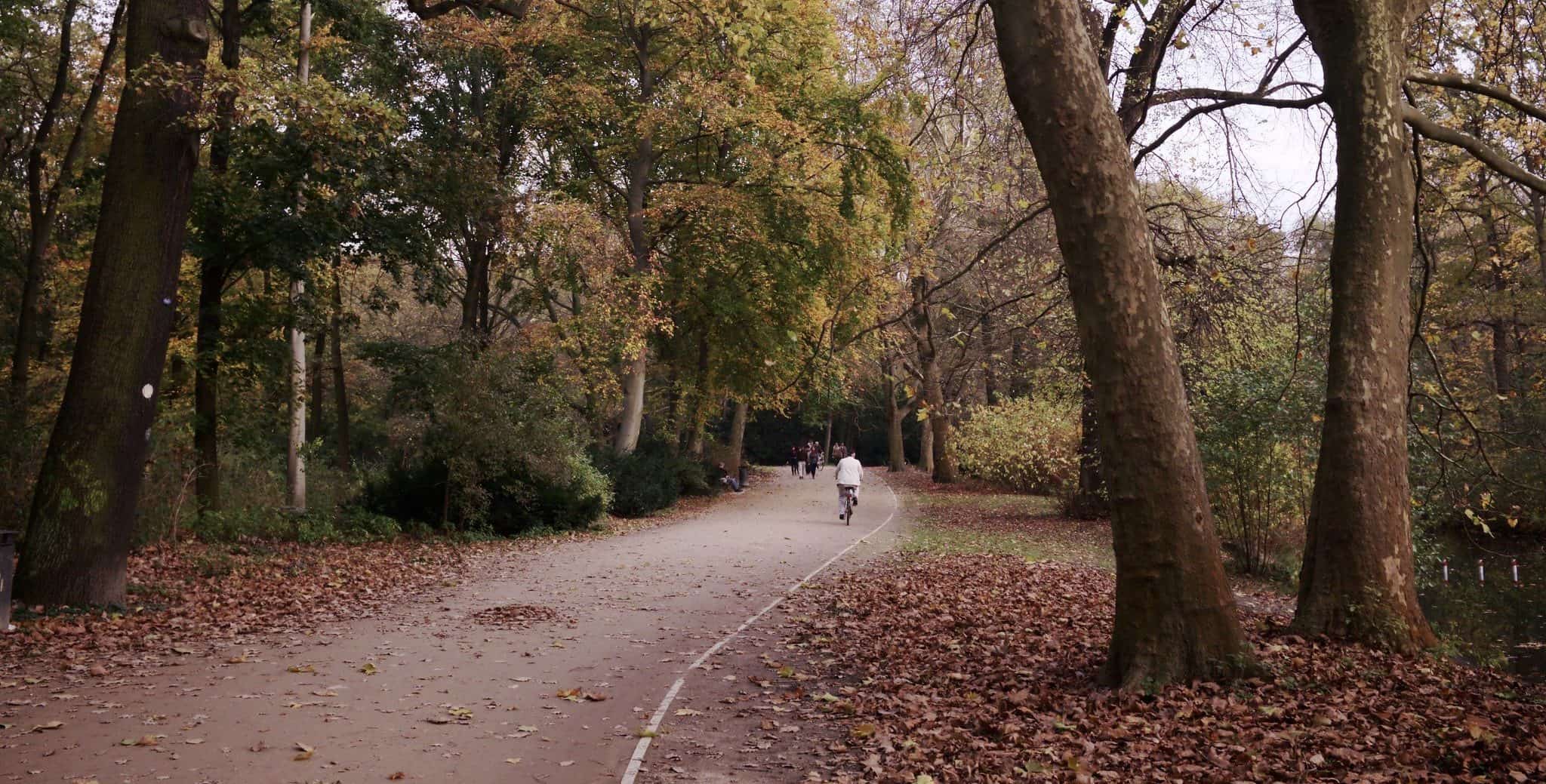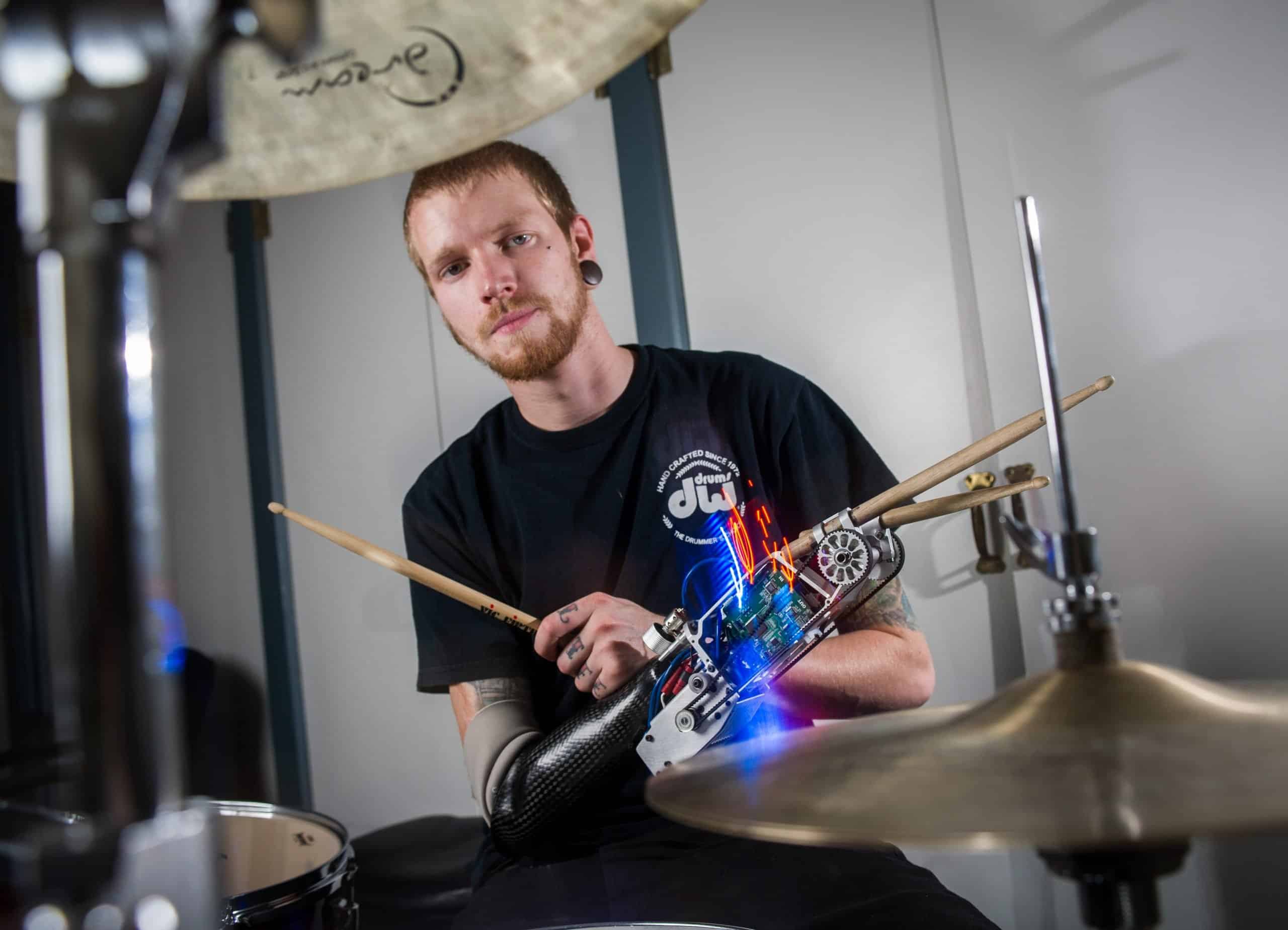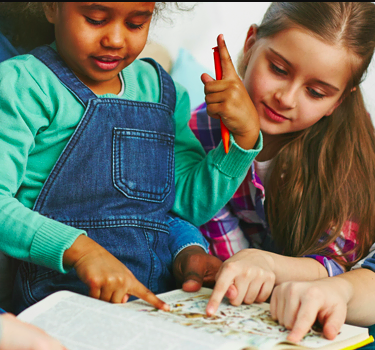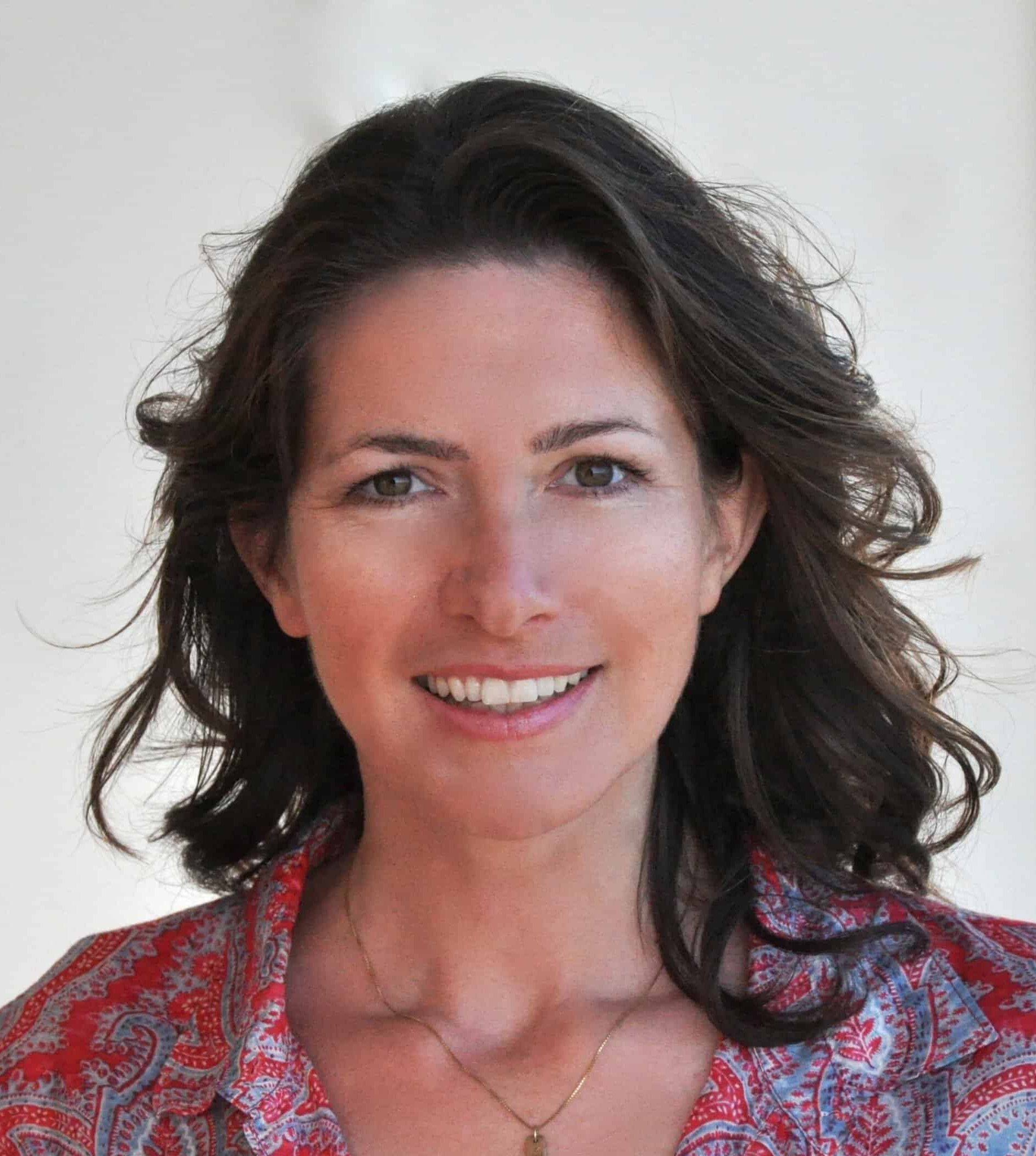When Larry Abrams started teaching English in New Jersey high schools in the early 2000s, his first two schools were within a few miles of each other, yet worlds apart.
At the first school in a wealthy suburb, “I taught the sons and daughters of millionaires,” Abrams remembers. The second school was “at the opposite end of the socioeconomic spectrum,” and Abrams says he had to “relearn how to teach” his students there.
“My ninth graders had a fourth- or fifth-grade reading level,” he says, though they were native English speakers. He realized this was because they were missing something he had taken for granted: books.
He had an “aha” moment in 2017, when he asked one of his senior students, Belyeneda Sanchez, what she was reading to her two-year-old daughter Brizzy. The student responded that she had no children’s books at home: “We just don’t do that in our culture.”
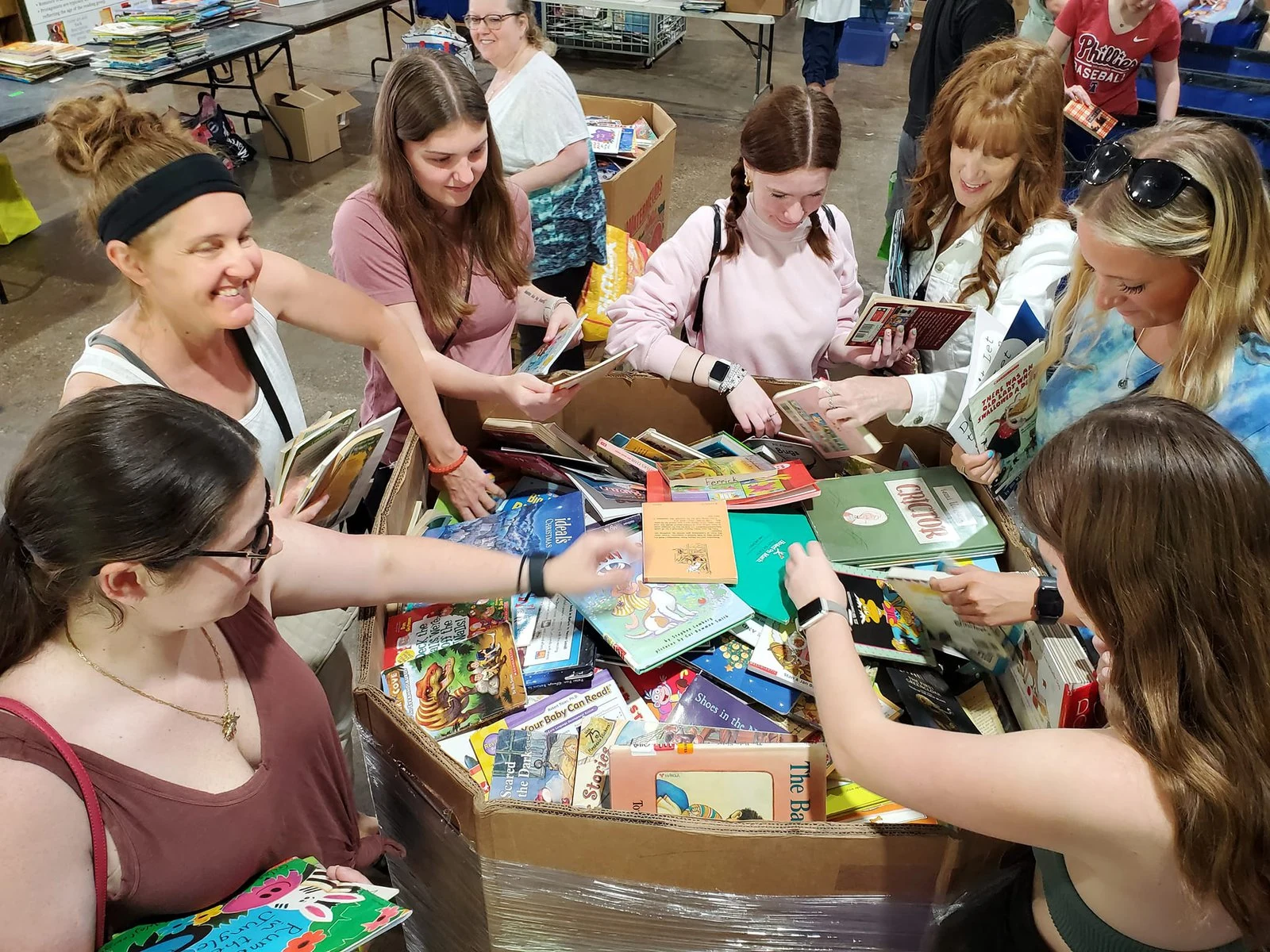
Abrams admits the response stumped him. The next day, he handed her a box of children’s books with the words, “Every kid needs books in their home.” Sanchez confesses she avoided Abrams in the following weeks because every time he saw her, he would inquire how Brizzy was enjoying the books, and she still hadn’t read any to her daughter. Eventually, Sanchez picked up Harold and the Purple Crayon, and her daughter enjoyed it so much that she started reading to Brizzy every night.
After that humble exchange, Abrams began requesting donations of gently used children’s books from friends and students, and within weeks, thousands of books piled up, first in his garage, then in a storage room. He distributed them to young parents and elementary schools. The book donations were met with so much enthusiasm (“It caused a feeding frenzy,” Abrams says) that he is now the founding director of the nonprofit BookSmiles, one of the biggest book banks for children in the US.
Crushed by negative news?
Sign up for the Reasons to be Cheerful newsletter.According to Abrams, BookSmiles has given away nearly two million books in the last six years. The nonprofit distributes about 70,000 free books locally each month and wants to raise that figure to 100,000. BookSmiles focus its efforts in the region, while other big book donation programs make books available by mail. For instance, Dolly Parton’s Imagination Library has donated more than 226 million children’s books nationally and internationally.
“We will not rest until every child in Philadelphia and in New Jersey grows up with books, and we are not going to let poverty and excuses get in the way,” Abrams promises. “That child is going to have a better success rate in kindergarten and in school than a kid who doesn’t have any books.”
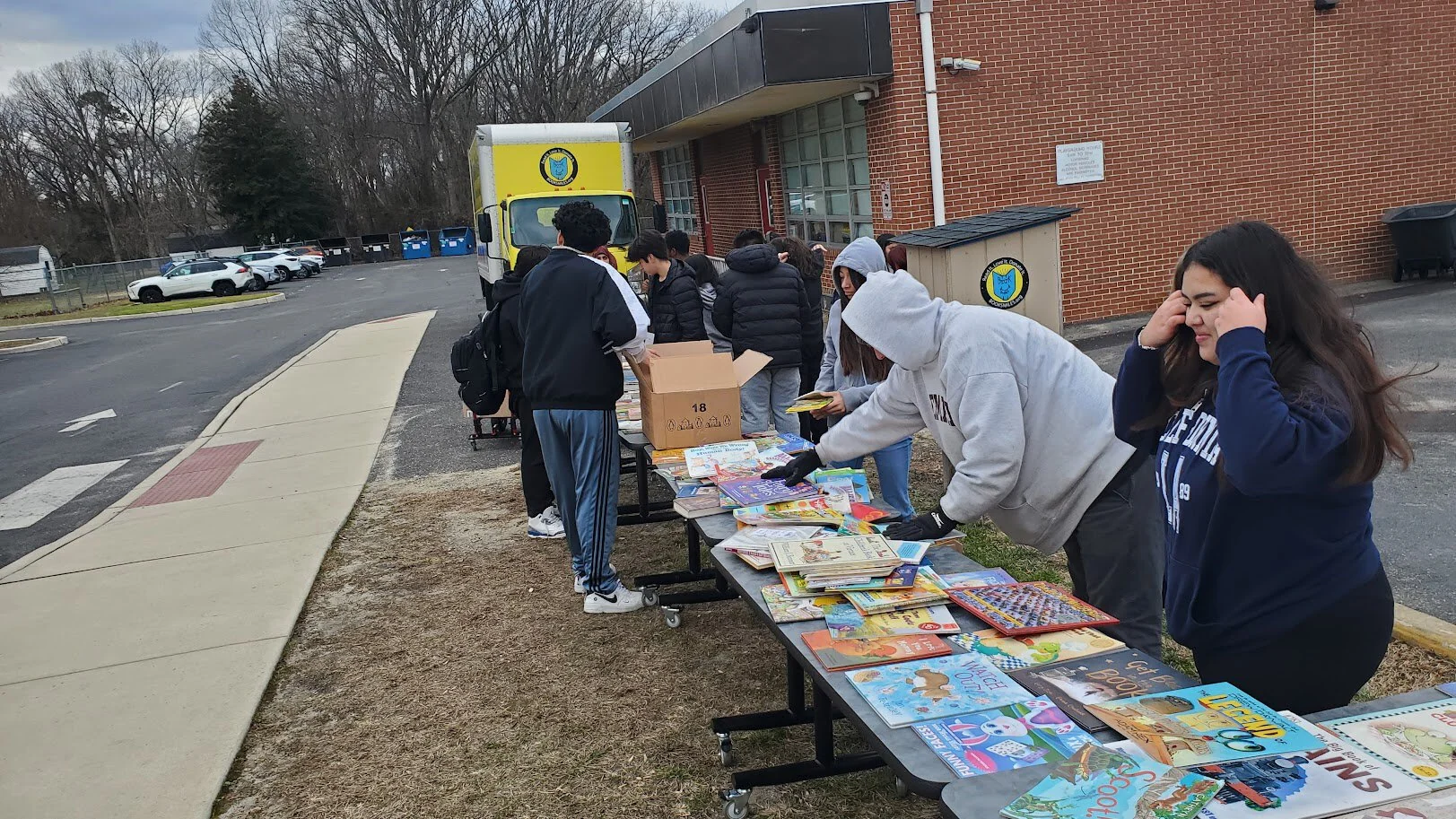
According to the US Department of Education, up to 61 percent of low-income families do not have any books for their kids at home. Forty-five percent of US children live in neighborhoods that lack public libraries and stores that sell books, or in homes where books are an unaffordable or unfamiliar luxury. This means that 32.4 million American children go without books, while 67 percent of the schools and programs in the nation’s lowest-income neighborhoods can’t afford to buy books at retail prices. For instance, in Washington, D.C.’s Anacostia neighborhood, where the poverty level sits around 61 percent, 830 children would share a single book, whereas children in high-income communities have about 13 books per child. The nonprofit End Book Deserts cites studies that show access to print resources during early childhood development has an immediate and long-term effect on vocabulary, background knowledge, and comprehension.
Abrams had grown up as a bookworm. Both his parents and his grandmother were teachers. “I never lacked books and magazines,” he says. “We went to the library. I got books as gifts. Some books are like friends to me or love affairs that I treasure. I like the transformative experience of reading, of going into other worlds, experiencing other cultures.”
It was not until he started teaching at the public Lindenwold High School in South Jersey that the lack of reading material in many households became evident to him. “Just as there are food deserts, there are book deserts,” he came to realize. “I can’t give the kids ballet lessons or summer camp. But we can give them books, and it’s transforming the culture of a family.” He quotes research to show that early literacy sets the stage for a child’s future success by promoting academic achievement, reduced grade retention (meaning fewer kids are held back), higher graduation rates and enhanced productivity in adult life. Abrams calls it “book wealth.”
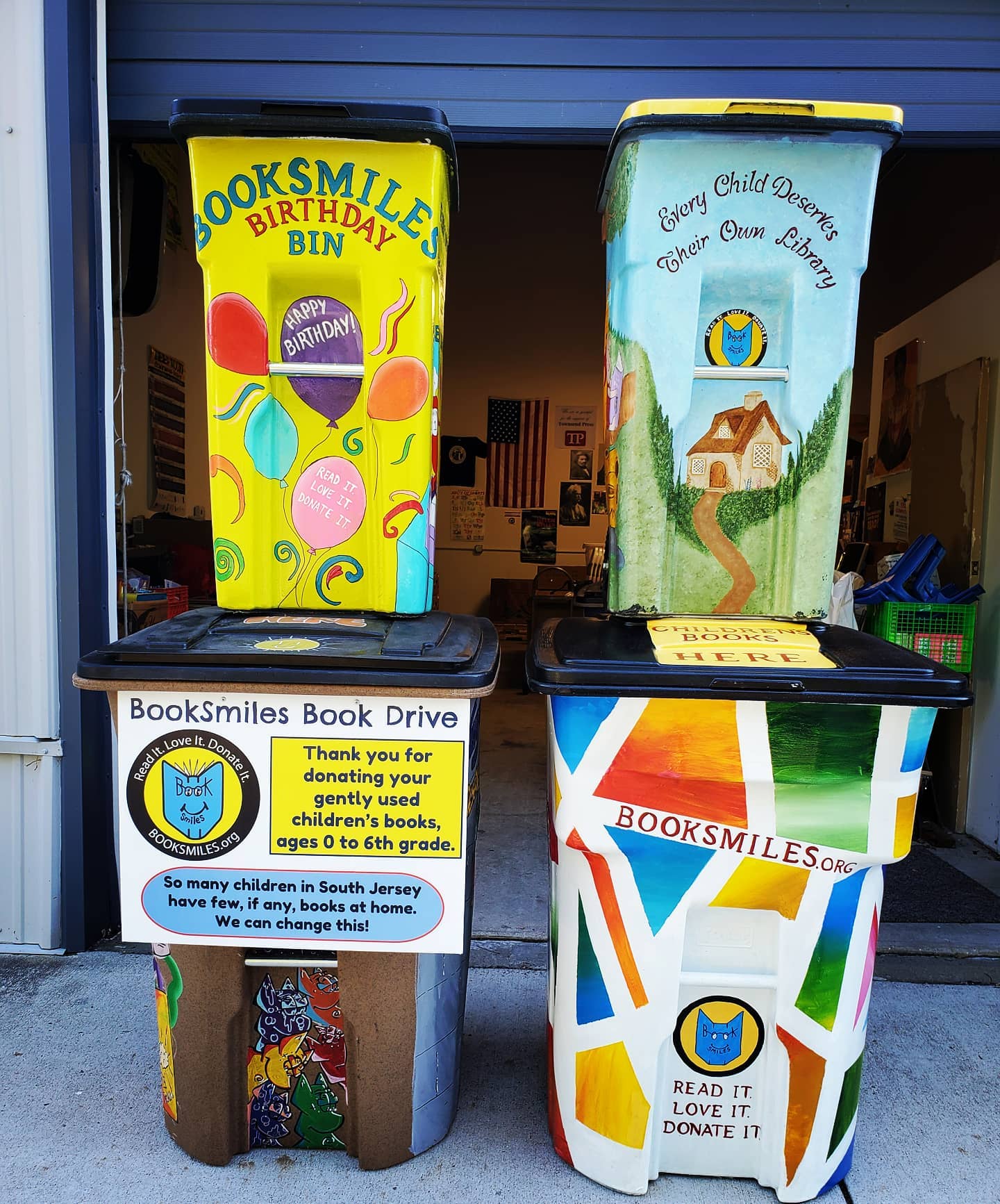
In front of BookSmiles’ 4,300-square-foot headquarters in Pennsauken, (clean) trash bins hand-painted with sunflowers, colorful birds and nature scenes invite passersby to drop off gently used books. The nonprofit gets the rest through student drives and by buying them cheaply from Goodwill. With the help of hundreds of volunteers, three full-time employees sort the books into age-appropriate groups. Abrams tries to make sure BookSmiles offers a diverse selection for the teachers who come by and pick up about 10,000 books per month. Like in a bookstore, available books are sorted on shelves, including LGBTQ books, bilingual books, books with Black protagonists and banned books. “If you don’t like a certain book, you don’t have to take it,” Abrams says. “I trust that teachers make good choices.”
“At first, when you hear about BookSmiles, you think it’s too good to be true,” Lisa Feinstein, a literacy coach at James H. Johnson Elementary School in Cherry Hill, told the Philadelphia Citizen. “The first time I went, it was like a yard sale, where you get 10 books, and think, ‘Yay, great!’ But then you’ve got Larry saying, ‘No, take more, take more, take more. Don’t leave here without 150 books!’”
During the pandemic lockdown, teachers stopped coming, and Abrams has since partnered with several nonprofits, including food banks, which load their trucks full of books and distribute them to families in need along with produce and diapers. The nonprofits include Share Food, Philadelphia’s biggest food bank; Cradles to Crayons, which distributes children’s clothing; and Fathers Read 365, two Philly dads who read to kids in daycare and distribute books. “I love the idea of feeding bodies and feeding minds,” Abrams says. “If you want a child to grow up and be a powerful person who has great writing ability and great language skills, you have to read to them.”
Abrams shows a picture of Brizzy, Belyeneda Sanchez’s daughter, who is now 12 years old, an honors student and loves to read. “English is her best class,” her mom attests. “You really never know what reading can do to a child but it goes to show that in the long run, it’s a great thing to do. Start them early, make it a habit, and they will enjoy it!”


